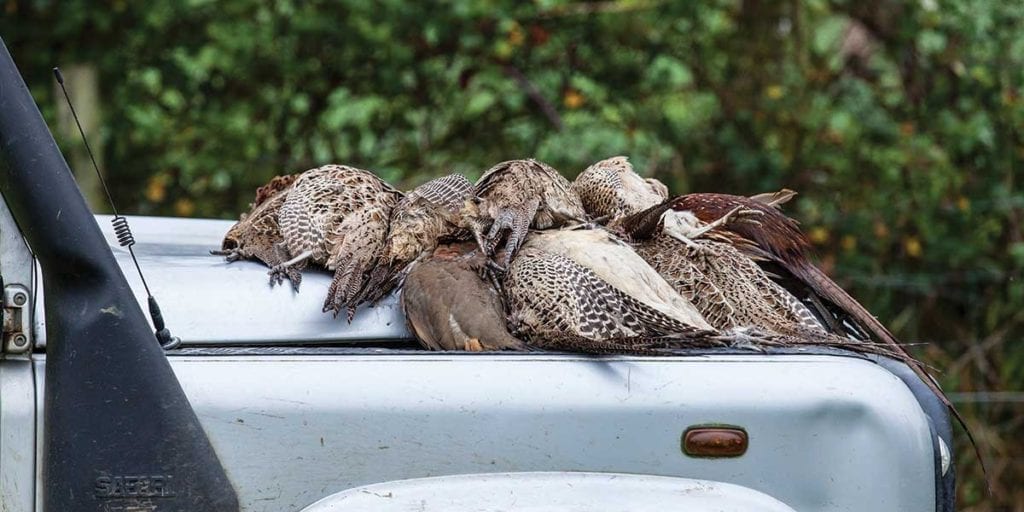Game is food

Marta Jacyna
Warmer autumns and winters make it essential that you pay close attention to proper game handling to ensure your birds are fit for processing.
Years ago, by the time the shooting season was in full swing, the weather was usually cool and nobody had to worry too much about game meat getting spoilt. Generally, shooting used to start a little bit later in the year too, with most partridge days being held in October rather than September. The demand for partridges (and other game) might be growing, but the weather insists on making things difficult, with temperatures soaring to 20 degrees or more on some days… so it’s essential to take proper precautions if you want to sell your birds on to game dealers.
If you sell shot birds to dealers, i.e. Approved Game Handling Establishments (AGHE), or even local pubs or your neighbour, they will all expect you to uphold the health and safety regulations and hygiene requirements. This means delivering birds in good condition that have been properly inspected and stored. Some game dealers might refuse to pay you if a high percentage of birds are too damaged or contaminated to enter the food chain.
If you do work with an AGHE you should always have a person trained in meat hygiene present on a shoot day. If you agree on a certain number of birds to be delivered, try not to shoot more simply because you can. Give your game dealer a list of your shoot days in advance too. If you need to cancel any days, or add extra ones, tell them straightaway – they might be unable to pick up any surplus. Research available AGHEs and choose one which will be able to take on the amount of game you shoot. Be realistic. Sometimes it’s better to go for dealers offering less money per bird, but who will keep their end of the bargain.

Game must be regarded as food as soon as it ‘hits the ground’.
Therefore, shooting it carelessly – at close range, or in places where it can be lost or contaminated – should be avoided. Ensure anyone handling the birds is in good health and your game cart is cleaned after each shoot.
Correct cooling is essential. Birds should be hung in game carts as quickly as possible, not packed in too tightly – the air needs to flow freely between them. On warm days, ask Guns and pickers-up to use hangers rather than game bags to transport the birds to the cart.
On really warm days, ensure that shot game is taken to the chiller (which should always be switched on, checked and set at below 4°C) as soon as practicable throughout the day.
Another big problem is flies. They will be quickly attracted by the smell of blood and it takes seconds for them to lay eggs on the birds. You might not even realise they’re there. Inspect the birds carefully, looking for the tell-tale yellow spots attached to the feathers or meat, especially around the shot wounds, but also around the eyes, beak and cloaca (anus). If you find any infected birds – quickly separate them from the others.
A cart with a built-in cooling system, which will keep the game cool for longer, may be worth investing in, but there are cheaper solutions which can help – like putting bottles of frozen water on the bottom of the cart or a mesh cover over it.
Remember, BASC is here to offer you help and advice whenever you need it – we are just a phone call (or email) away.
Recap Top Tips:
Keep all game clean; protect it from contamination.
- Allow maximum airflow around the birds (both in the game cart and in the larder) so that they can cool down properly.
- Ensure the birds are spaced apart, so that they won’t touch each other.
- Rapid cooling and correct storage are crucial. Game must be stored at 4℃ or lower.
- Unless shot birds are collected or delivered to a dealer or consumer on the day of the shoot, you need to have correct storage facilities, i.e. a game chiller.
- The chiller must be clean, able to keep flies and pests out and must be in good working order.
- Damaged birds, or those unfit for consumption, should be kept separate from the rest.
